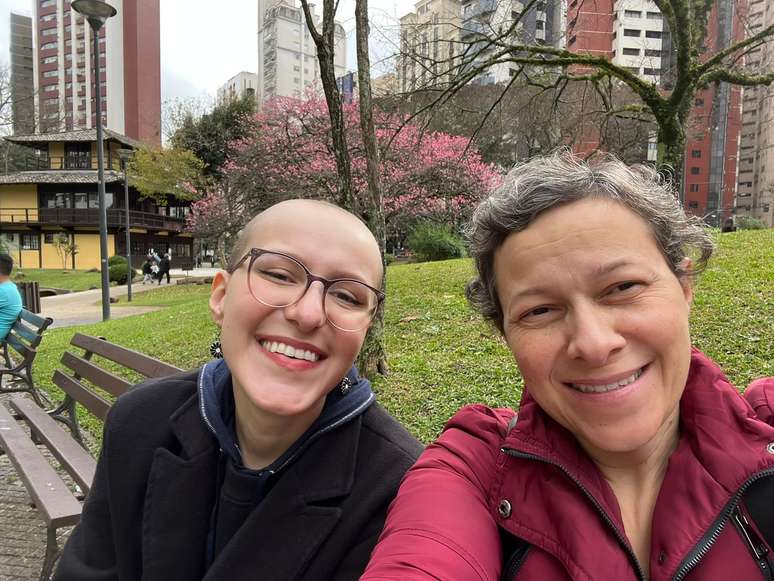The psychiatrist lists the main signs of excessive use of chemicals and makes recommendations for treatment.
Coping with chemical dependence is one of the major challenges facing our society. A survey by the United Nations Office on Drugs and Crime (UNODC) found that around 35 million people worldwide need treatment for it. Therefore, the first step to understanding the problem is to understand the situation deeply. This condition consists of the abuse of illicit drugs such as marijuana, crack, heroin, cocaine, among others, and legal drugs such as nicotine and alcohol that are freely consumed. Therefore, thinking of addressing this topic of chemical dependence, Dr. João Maurício, psychiatrist, brings some important information to help identify if a person close to you is sick and how to act to support him. Read on!
How to identify when someone is becoming addicted to chemicals?
Identifying a case of chemical dependency is not an easy task, as it is not something that happens overnight. The process is often time-consuming and involves progressive evolution. Hence, you need constant attention to detect the signs. Over time and the addiction progresses, the symptoms become more severe. In this phase the consumption intensifies and it is possible to perceive numerous changes in that individual. Agree with the doctor. João Maurício, there are some signs that family and friends should be aware of. Are they:
- use progressively larger amounts of the drug to achieve the same effect;
- withdrawal symptoms when stopping or reducing the drug
- difficulty stopping or decreasing use;
- the individual uses larger quantities than planned;
- the person uses the drug while having illnesses caused or exacerbated by it;
- a large amount of time spent seeking the drug, while using it, or recovering from use;
- episodes of intense desire to use the substance – which occurs for no apparent reason;
- recurring failures in the individual’s life – will have difficulty fulfilling professional, personal and family commitments, for example.
When a person is chemically addicted, they will develop signs, which can be a set of those mentioned or just a few (at least three).
“There are parameters that must be evaluated by a health professional so that the diagnosis can be made satisfactorily and therefore the best course of treatment can begin”says psychiatrist João Maurício.
What is the role of the family in this process?
The family plays a vital role in the life of addicts. Family life helps identify signs of substance abuse. For this it is necessary that the nucleus of that house is aware of the behavior changes. If you notice any signs that leave a red alert, it is important not to distance yourself from the person in question, such an attitude could worsen the employee’s condition. Next, Dr. João Maurício, defines two important stages in this process.
- Identification: that is, when family and friends are able to perceive the signs of chemical dependence, even when the user himself does not yet recognize himself in this role.
- Treatment: after acknowledging that they need help with the disease, the individual undergoes treatment specific to their condition. Furthermore, it should be noted that (involuntary) hospitalization can only be made compulsory in extreme cases.
In this context, the family plays a key role in promoting care. It will be support for that person. The process the addict will go through is a delicate one and will need all the support of family and medical guidance.
How to avoid relapses?
Agree with the doctor. João Maurício, after the two phases mentioned above, there is a third: relapse prevention. This is therefore one of the most delicate phases that the individual goes through and does not end in a short time. Relapses can occur at various stages in the treatment and in the addict’s life. Be gentler in the beginning when abstinence is challenging. Prevention against this situation mainly revolves around avoiding risky situations.
“One of the first steps we take in conversations with addicts is to map out in which situations the person used the substance. Based on this, it is indicated, especially at the beginning of abstinence, that the person stays away from any circumstance that encourages drug consumption,” explains Dr. João Maurício.
But over time the person will find himself, at some point, in the presence of risky situations. A birthday, a party with friends or a meeting with a drug-using group, for example. These moments pose a great risk to the individual. Therefore, it is necessary to have a specific job so that the person can overcome a high-risk situation without having a relapse.
html[data-range=”xlarge”] figure image img.img-3ee1366db93ace5f7cc725106be6d648zwwg7wpp { width: 774px; height: 508px; }HTML[data-range=”large”] figure image img.img-3ee1366db93ace5f7cc725106be6d648zwwg7wpp { width: 548px; height: 360px; }HTML[data-range=”small”] figure image img.img-3ee1366db93ace5f7cc725106be6d648zwwg7wpp, html[data-range=”medium”] figure image img.img-3ee1366db93ace5f7cc725106be6d648zwwg7wpp { width: 564px; height: 370px; }
How to deal with withdrawal crises?
This is the crucial moment in the recovery of the individual. After all, it is a delicate phase and, many times, the addict’s life is at risk. Each drug has a specific withdrawal syndrome, often with different signs and symptoms. Withdrawal seizures should be treated as a medical problem deserving proper healthcare, as withdrawal from alcohol, opioids, and even tranquilizers can be life-threatening. However, most users who go through this stage experience mild to moderate effects. Therefore, it must be emphasized that this can be the defining moment between treatment and relapse. This period should preferably take place within a hospital or place with medical assistance. There are specific medications for each withdrawal that can help the user overcome this situation safely.
“Without adequate support, the chances of relapse in the first few hours, days or weeks are very strong. This is perhaps the most “medical” moment of the treatment”, emphasizes the psychiatrist. In other words, the neurochemical processes of the brain in the state of withdrawal overcome the psychic processes, and the patient needs pharmacological help to deal with this situation.
What to do when the person does not accept this help?
There are certain steps that must be followed in order for you to be successful in this mission, which is to help a chemically addicted person in seeking treatment. Are they:
- offer help;
- seek a support group for relatives of dependent people;
- try to keep the individual within the familiar dynamics of tasks and activities;
- show that the individual is dysfunctional;
- seek involuntary hospitalization – when necessary (psychotic symptoms, suicidal ideation, aggression);
- seek a health professional for guidance;
The person who is chemically addicted becomes progressively more submissive to that use continuously and in ever increasing amounts. It is necessary to pay attention to the signs mentioned throughout the text, for an early identification of addiction. This generates better treatment results.
*Dr. João Maurício Castaldelli Maia is Assistant Professor of Psychiatry at FMABC/ Master and Doctoral Advisor in Psychiatry at FMUSP
Source: Terra
Ben Stock is a lifestyle journalist and author at Gossipify. He writes about topics such as health, wellness, travel, food and home decor. He provides practical advice and inspiration to improve well-being, keeps readers up to date with latest lifestyle news and trends, known for his engaging writing style, in-depth analysis and unique perspectives.





![Un Si Grand Soleil Preview: Episode Summary for Monday, October 20, 2025 [SPOILERS] Un Si Grand Soleil Preview: Episode Summary for Monday, October 20, 2025 [SPOILERS]](https://fr.web.img4.acsta.net/img/24/61/24614f00035a1444d216245e9a9c963f.jpg)


